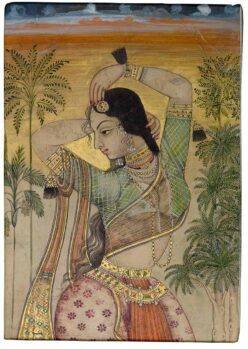Please tell us something about your early life, parents?
I was born on 13th June 1924, in village Thanil Kamal, Tehsil Chakwal, then District Jhelum (now District Chakwal). I spent my childhood in rural atmosphere, which at that time was quite primitive. There was no electricity, no roads, no telephones and as far as I remember no one owned even a bicycle. Radio came much later. Men, women and children wore the same dress as their ancestors put on centuries ago. There was not much difference between the rich and the poor. There were no social barriers and the living style of all the inhabitants was almost alike. A village was a self-sustained compact unit. They produced their own wheat, meat, vegetable, rice, ghee, eggs and almost everything one needs for ones simple living. The village shopkeepers were Hindus or Sikhs. Almost all purchases from the shops were on barter system. The prices of agricultural and dairy products were very low: -Wheat was sold at 1 1/4 rupees a maund. (40 Kilo) Meat 1/4 rupee a seer ( Kilo) Milk – 10 seers for one rupee.Pure desi ghee – 1 1/4 seer for one rupee. Chicken weighing one seer for about four annas (1/4 rupee). These rates compared
favourably with the rates laid down in “Aaeen-i- Akbari” during the Mughal Emperor Jalal ud Din Akbar’s rule, more than four hundred years ago.
Both my father and mother were highly religious. I inherited my religious convictions from my parents.
Please tell us about your school / college days and any decisive influences on your personality formation / development of convictions ?
A common village boy living in rural atmosphere, as mentioned above, could not conceive any high ambitions. I had many relatives in the Army but the highest rank held by any one of them was that of a Subedar, (which was then called Viceroy Commission). In fact, as far as I remember, there was not even a single King’s Commission Officer in the whole of Tehsil Chakwal at that time. ( First IMA course passed out in 1934/35). From village school, I moved to Government High School Chakwal. Lieut General Abdul Majeed Malik and Maj General Nazar Hussain Shah were a class ahead of me. Brig Amir Gulistan Janjua, whose last appointment was Governor of NWFP, was my class fellow. I think if statistics are taken, that rural area High School produced more Brigadiers and Generals than Aitchison College and Burn Hall combined.
What were your perceptions as young man in pre-1947 India about the prevalent political conditions, Muslim League, Congress etc?
The British Indian army was a mercenary Army. Although occasionally we used to read about the political developments then taking place, yet at that time it never occurred to us that the Indian Army would be divided so soon and a new state of Pakistan would come into being as a homeland for the Muslims. It looked a fantasy. I vividly remember when I was a cadet, I had read an article in one of the magazines, perhaps the Military Digest, wherein, the then Commander-in-Chief Indian Army, Field Marshal Sir Claude Auckinleck, while addressing army personal at some station had said, “In ten years time, you would have all Indian Battalion Commanders, in fifteen years time you would have all Indian Division Commanders, and in twenty years time you would have an Indian Commander-in-Chief.” From this statement it would become evident that the division of Army was never visualised even at the highest level of military hierarchy, nor did theBritish officers ever think of vacating their biggest colony so soon. At the most one could say that India might get dominion status in due course of time, but complete independence was still being regarded as a dream.


